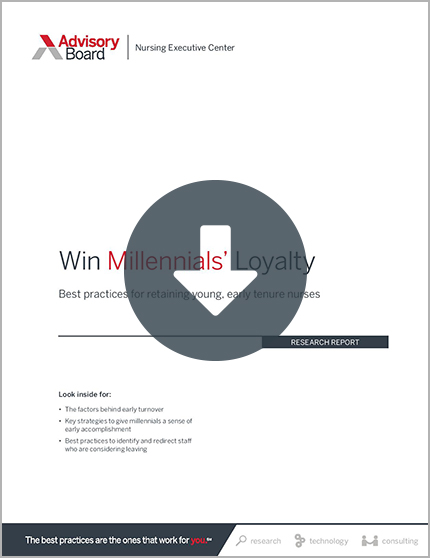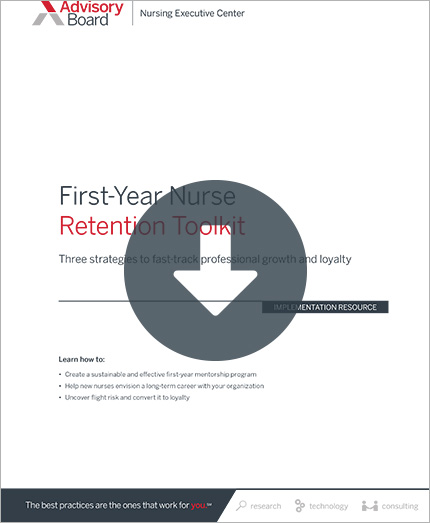Auto logout in seconds.
Continue LogoutEditor's note: This story was updated on March 20, 2018.
Effective mentorships are key to helping young medical professionals chart their careers, and while mentorship dynamics in the United States have changed in recent decades, the relationship is just as important as ever.
Mar. 26 webcon: Learn how UnityPoint Health created a successful mentorship program
Lara Goitein, a pulmonologist, and her mother, Marcia Angell, a physician, in a recent JAMA Medicine viewpoint described the changes in medical practice and mentorships across their generations.
In the past, according to Goitein, "senior physician scientists would explicitly dedicate themselves to the cultivation of particular trainees, and the accomplishments of those trainees were taken as the success of the mentors." But Goitein said that in her own, more recent experience, "these close, long-term, explicit mentoring relationships were no longer the norm." Instead, mentoring exists in a "more diffused and less formal" way, she said.
Regardless of what form it takes, industry experts agree that mentorships hold value for both providers and employers as they can be key to staff retention and engagement.
No one way to mentor
The evolving culture has prompted more mentors to adopt an approach that matches their own personal style, Medical News Today reports.
For instance, a recent commentary in The Lancet highlights the importance of the formal mentor relationship, arguing that "those with mentors make more informed career decisions, are more productive, experience less burnout, and have an improved sense of well-being."
Meanwhile, others say it is better to be flexible in how a mentorship is approached. For instance, Mott Blair—a family doctor in Wallace, North Carolina, and member of the board of directors of the American Academy of Family Physicians—has mentored young doctors and students both formally and informally.
While there is no one way to mentor, a 2013 study in Academic Medicine detailed the main factors that can make or break a mentorship. For instance, the study found mentors want mentees who:
- Actively listen and are open to feedback;
- Are respectful of their mentor's time; and
- Show up to meetings prepared with discussion topics and action steps.
Meanwhile, mentees want mentors who:
- Create opportunities and open doors;
- Provide emotional support;
- Offer advice on work-life balance; and
- Will help guide their careers.
Mentorships in practice
One way mentorships can pay off for hospitals and health systems is through improved retention. By pairing newly hired physicians with mentors, organizations can ensure smooth integration and instill cultural expectations early on.
Wellspan Medical Group in Pennsylvania, for instance, launched a formal mentorship program that matches newly hired physicians with experienced providers within the same specialty. Mentorship pairs meet regularly throughout the onboarding physician's first year to discuss his or her transition into the medical group.
At other institutions, HR leaders help build mentorship relationships off the bat by incorporating mentorship into staff onboarding.
Mercy Health Partners in Ohio, for example, uses peer learning to enhance physician onboarding. The five-hospital system hosts a series of "lessons learned panels," where relatively new physicians share stories and advice with newly hired providers.
After opening remarks from the CEO, participants delve into a roundtable discussion with physicians recruited in the past two years. The panels are hosted by the CMO, occur each quarter, and last about one hour. These "what I wish I had known" panels strive for an informal atmosphere where new physicians feel safe to ask questions in a collegial, supportive environment. They also provide an important touch point between new physicians and executive leadership.
While much discussion about mentorship in medicine focuses on physicians, mentorship is crucial for nurses as well.
Young nurses starting their careers today have many options that might lure them to apparently greener pastures: They have more opportunities to work in non-hospital environments, more tools to identify, and face little to no penalty for changing jobs at the start of their careers. Mentorships that focus on skill development, emotional and social support, and career planning are essential for nursing leaders to retain these new, young employees (Sayburn, Medical News Today, 7/10).
Mar. 26 webcon: Learn how UnityPoint Health created a successful mentorship program
Join us on Monday, Mar. 26 at 3 pm ET to learn how UnityPoint Health created a unit-based mentor program at their organization and were able to help new graduates manage their workload and reduce turnover.
Don't miss out on the latest Advisory Board insights
Create your free account to access 1 resource, including the latest research and webinars.
Want access without creating an account?
You have 1 free members-only resource remaining this month.
1 free members-only resources remaining
1 free members-only resources remaining
You've reached your limit of free insights
Become a member to access all of Advisory Board's resources, events, and experts
Never miss out on the latest innovative health care content tailored to you.
Benefits include:
You've reached your limit of free insights
Become a member to access all of Advisory Board's resources, events, and experts
Never miss out on the latest innovative health care content tailored to you.
Benefits include:
This content is available through your Curated Research partnership with Advisory Board. Click on ‘view this resource’ to read the full piece
Email ask@advisory.com to learn more
Click on ‘Become a Member’ to learn about the benefits of a Full-Access partnership with Advisory Board
Never miss out on the latest innovative health care content tailored to you.
Benefits Include:
This is for members only. Learn more.
Click on ‘Become a Member’ to learn about the benefits of a Full-Access partnership with Advisory Board
Never miss out on the latest innovative health care content tailored to you.


